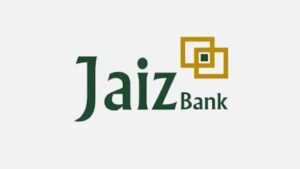


CBN imposes 10% fine on banks linked to cash hawkers
The Central Bank of Nigeria (CBN) has announced stringent penalties for Deposit Money Banks (DMBs) found diverting cash to hawkers, as part of its ongoing efforts to ensure responsible currency distribution.
In a circular dated November 13, 2024, the apex bank stated that any bank linked to cash seized from hawkers would face a 10 percent fine on the total value of the withdrawn funds.
Subsequent violations will attract an incremental penalty of 5 percent.
The circular, signed by the Acting Director, Currency Operations Department, Muhammad J. Olayemi emphasised that these measures aim to curb the abuse of naira notes and promote an efficient cash distribution system.
It reiterated the CBN’s commitment to enforcing its Clean Note Policy, which seeks to maintain the integrity of the naira by ensuring proper handling and circulation of banknotes.
The CBN also warned DMBs against cash hoarding and diversion, noting that such practices undermine access to cash, particularly during high-demand periods like the yuletide season.
Banks engaging in these activities will face sanctions, with the CBN working closely with law enforcement agencies to intensify spot checks and mystery shopping activities.
The circular read, “For the avoidance of doubt, it should be noted that:
“a) DMBs, to whom cash seized from ‘hawkers’ of cash is traced, will be penalised 10 percent of the total value of cash withdrawn on the day the seized cash was withdrawn from the Central Bank of Nigeria. Every subsequent offense will incur an incremental penalty of 5 per cent.
“b) DMBs found engaging in cash hoarding, diversion, or any actions that hinder efficient cash distribution, including violations of the Clean Note Policy, will incur appropriate sanctions.”
The circular highlighted the need for banks to prioritise the disbursement of cash through Automated Teller Machines (ATMs) to enhance public access and minimize reliance on unauthorised channels.
The apex bank’s directive follows rising concerns over the circulation of new naira notes in informal markets, often traced back to hawkers who sell cash at a premium. By penalising banks involved in such practices, the CBN aims to deter the misuse of Nigeria’s currency and ensure that cash reaches legitimate end-users.
The enforcement of these penalties forms part of the CBN’s broader strategy to maintain public confidence in the financial system. The Clean Note Policy is central to this approach, as it seeks to reduce the circulation of soiled and unfit banknotes while discouraging unethical practices within the banking sector.
With the festive season approaching, the demand for cash is expected to surge, prompting the CBN to double down on its regulatory efforts.
The circular advised banks to strengthen their internal processes and ensure strict compliance with the guidelines for cash disbursement.
To enforce accountability, the CBN will intensify its monitoring activities, working alongside law enforcement agencies to identify and penalise offenders. These efforts, the apex bank noted, are essential to addressing systemic inefficiencies and ensuring the effective distribution of cash across the country.
The circular noted, “As we approach the yuletide season, with an anticipated increase in cash demand, DMBs are advised to implement internal controls for responsible disbursement and accountability in respect of mint banknotes payouts at their outlets. To enhance public access to cash, we encourage banks to prioritise cash distribution through ATMs.
“During this season, the Bank, in collaboration with relevant law enforcement agencies, will intensify spot checks and mystery shopping activities to monitor and enforce responsible cash distribution and prevent Naira abuse.”
This latest directive signals the CBN’s resolve to address lingering issues in cash management, particularly as it relates to the abuse of naira notes.
For banks, compliance will not only mitigate the risk of penalties but also reinforce their reputation as responsible financial institutions.
As the yuletide season unfolds, the effectiveness of the CBN’s measures will depend on how well banks align with the directives and the central bank’s ability to enforce compliance.



